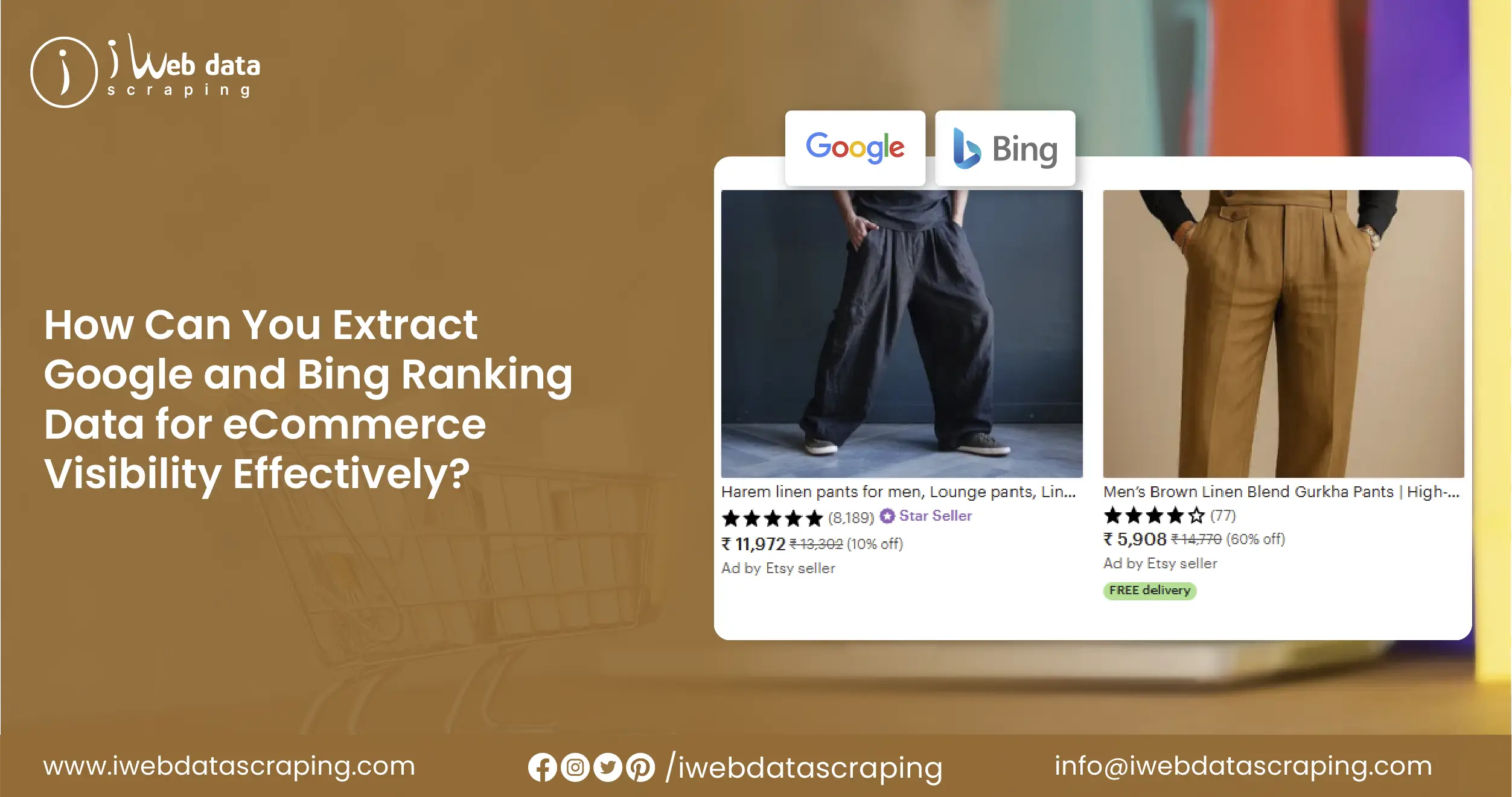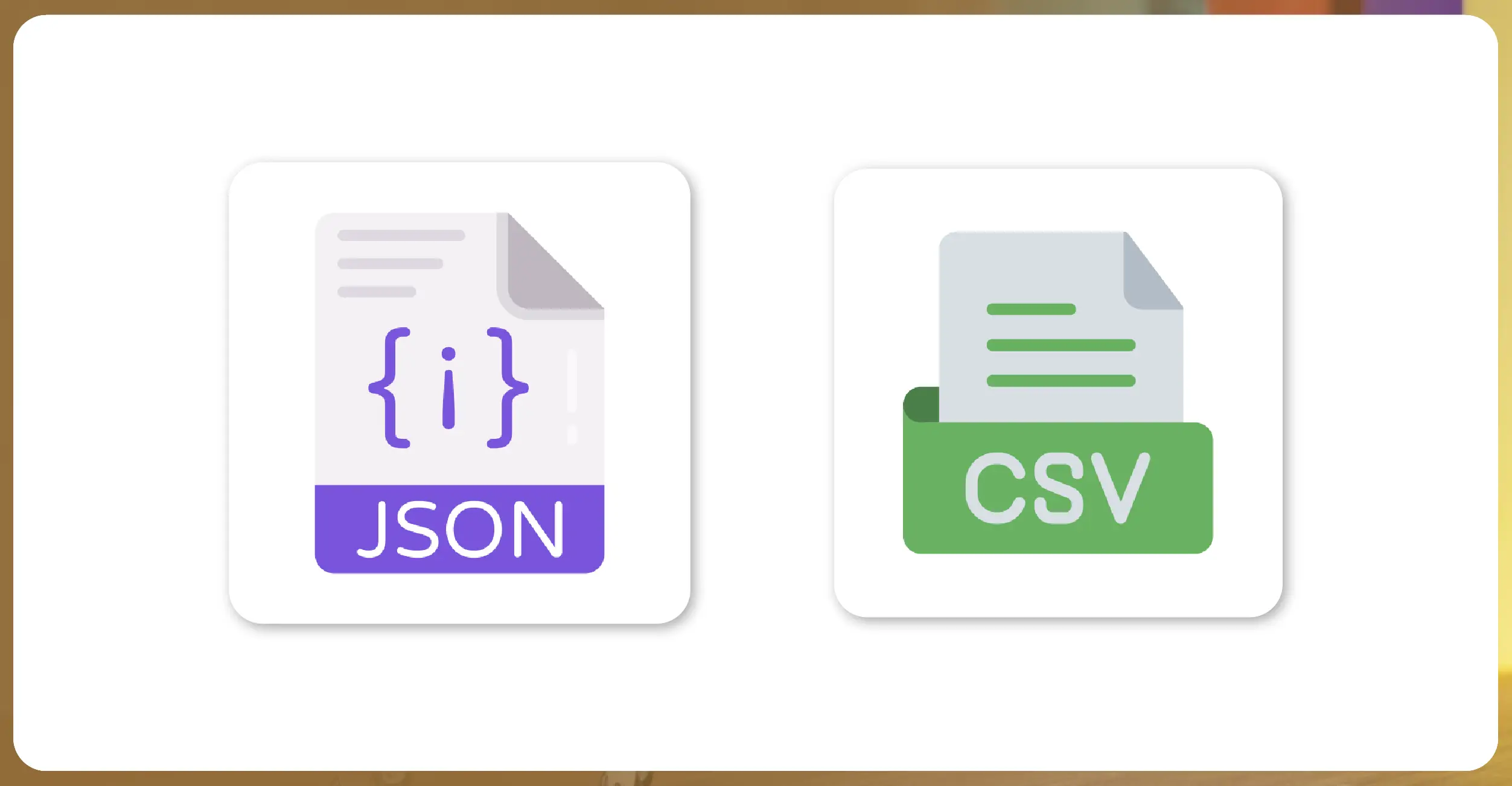

In today's digital-first retail environment, visibility on search engines like Google and Bing is critical for eCommerce success. Shoppers rely heavily on search engines to discover products, compare prices, and make purchasing decisions. For businesses, understanding their own ranking and how their competitors perform is essential. This is where the ability to extract Google and Bing ranking data for eCommerce visibility comes into play. By leveraging tools that provide accurate ranking insights, online retailers can make strategic decisions to enhance visibility, improve conversion rates, and drive revenue growth.
The process of Google and Bing rankings data extraction allows businesses to monitor their performance across multiple keywords and product categories. Using a search engine ranking scraper, companies can track fluctuations in rankings, identify opportunities to optimize content, and understand the effectiveness of marketing campaigns. This data-driven approach ensures that eCommerce strategies are aligned with real market performance rather than assumptions.

Search engines operate using complex algorithms that determine which pages appear at the top of search results. Google and Bing consider hundreds of factors, including relevance, user engagement, and page authority. For eCommerce businesses, securing high-ranking positions on SERPs (Search Engine Results Pages) can significantly influence traffic and sales. Retailers that fail to track their rankings risk losing market share to competitors who actively monitor and optimize their presence.
Google SERP data extraction provides a granular view of search results, showing not only a website's position but also competitor listings, featured snippets, and local pack appearances. Similarly, Bing rank tracking allows businesses to understand their visibility on Microsoft's search engine, which, though smaller than Google, represents a valuable segment of users. Collecting these insights helps retailers prioritize optimization efforts and invest in high-impact areas.
For eCommerce businesses, visibility on SERPs is closely tied to revenue generation. Products that appear on the first page of search results are significantly more likely to receive clicks, resulting in increased traffic and potential sales. SERP analysis offers valuable insights into keyword performance, the competitive landscape, and content gaps. With SERP data scraping, businesses can continuously monitor these trends to stay ahead of competitors.
A critical aspect is tracking long-tail keywords specific to each product offering. For example, a retailer selling eco-friendly water bottles may want to track phrases like "BPA-free water bottles for travel." Extracting these rankings allows the business to understand which keywords drive traffic and where content optimization is needed.

The process of extracting search engine rankings involves several tools and methodologies. Businesses often use automated scripts, APIs, or commercial ranking platforms. A search engine ranking scraper can systematically query Google and Bing, retrieving positions for thousands of keywords efficiently.
Advanced solutions are used to extract Google rankings for eCommerce visibility techniques to provide not only ranking positions but also additional metrics such as search volume, click-through rate, and competitor performance. Combining this with eCommerce visibility via search engine rank extraction enables retailers to assess the impact of SEO strategies on actual traffic and revenue.
APIs such as SERP data API Google Bing provide structured data in JSON or CSV formats, making integration into dashboards and analytics platforms seamless. These services enable real-time monitoring and automated reporting, saving time and resources for marketing teams.
One of the primary benefits of ranking data extraction is competitor benchmarking. By comparing rankings with those of similar e-commerce retailers, businesses can pinpoint areas where their competitors excel. This includes monitoring product pages, category listings, and content strategies to ensure optimal performance.
Using a Search Engine Data Scraping Service, companies can gather insights on competitor keywords, backlink profiles, and content quality. This allows them to refine strategies, improve product descriptions, and optimize metadata for higher rankings. Retailers that adopt these practices gain a competitive edge by targeting keywords that convert effectively and aligning marketing efforts with market demands.
Extracted ranking data informs a range of strategies that directly impact visibility and conversions. Retailers can optimize on-page SEO elements, including title tags, meta descriptions, headers, and product content. High-performing keywords identified through Web Scraping Services can be prioritized in content development and paid campaigns.
Additionally, ranking data highlights gaps in product coverage. For instance, if certain products fail to rank despite high search interest, businesses can adjust product descriptions, improve imagery, and enhance the relevance of their content. This systematic approach ensures that Web Scraping AI Data drives intelligent decisions for content, UX, and marketing optimization.
Ranking extraction also enables the calculation of Share of Search, a crucial metric for evaluating a brand's visibility in relation to its competitors. By measuring how often a brand appears in top positions for relevant keywords, retailers can quantify market share in search. The Share of Search Services complements ranking analysis by providing actionable insights into brand exposure, keyword dominance, and category performance.
Combining these insights with eCommerce analytics provides a holistic view of performance. eCommerce Data Intelligence Services help translate raw search data into strategic recommendations, including content improvements, pricing adjustments, and promotional targeting.
A mid-sized eCommerce retailer specializing in home fitness products implemented a ranking extraction strategy across Google and Bing. Using Google SERP data extraction, the retailer monitored 2,000 keywords, including long-tail and high-volume terms. By analyzing trends and competitor positioning, they discovered several product pages underperforming in search results.
With targeted optimization, including metadata improvements, structured content updates, and backlink building, the retailer improved rankings for key products by 35% over six months. Bing rank tracking revealed untapped opportunities in Microsoft's search engine, resulting in a 10% additional increase in traffic. Overall, SERP data scraping enabled precise targeting, boosting organic traffic, conversions, and ROI.
Unlock your eCommerce potential today—leverage our Google and Bing data scraping solutions to boost visibility, outperform competitors, and drive measurable growth.
By following these best practices, retailers can extract Google and Bing ranking data for eCommerce visibility, which leads to measurable business outcomes.
While ranking extraction provides valuable insights, it is not without challenges. Search engines continuously update algorithms, which can impact rankings. Automated scraping must comply with search engine policies to avoid IP bans or throttling. Additionally, large-scale extraction requires handling high volumes of data, necessitating robust infrastructure.
Leveraging Web Scraping Services helps mitigate these challenges by providing scalable, compliant, and automated solutions. Combining multiple data sources ensures comprehensive visibility and avoids blind spots in competitive analysis.

As eCommerce grows increasingly competitive, leveraging search engine ranking data becomes essential for sustained growth. Predictive analytics, AI-driven insights, and automated reporting will play a central role in identifying emerging trends, optimizing product listings, and improving overall visibility. Retailers that invest in Web Scraping AI Data and advanced analytics will be well-positioned to capture market share, enhance brand recognition, and drive higher conversions.
Integrating Share of Search Services and eCommerce Data Intelligence Services enables businesses to convert raw search data into actionable strategies, thereby maximizing ROI on digital marketing investments.
Extracting Google and Bing rankings data is no longer optional for eCommerce businesses. By leveraging SERP data API Google Bing, retailers can monitor performance, benchmark competitors, and optimize visibility. The insights gained from Search Engine Data Scraping Service inform content strategy, SEO, and marketing campaigns, ensuring sustained growth. Advanced applications, including Web Scraping AI Data, transform raw data into actionable intelligence, giving businesses a measurable edge in an increasingly competitive digital landscape.
Experience top-notch web scraping service and mobile app scraping solutions with iWeb Data Scraping. Our skilled team excels in extracting various data sets, including retail store locations and beyond. Connect with us today to learn how our customized services can address your unique project needs, delivering the highest efficiency and dependability for all your data requirements.